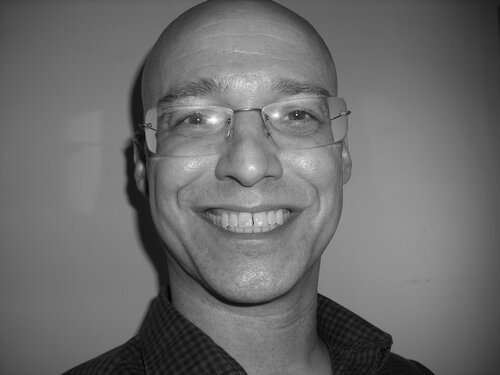Page 10 • (413 results in 0.04 seconds)
-

Visiting Assistant Professor of Philosophy | Department of Philosophy | leland@plu.edu | 253-535-7396 | As a teacher of philosophy, I very much enjoy both 1) introducing new students to this exciting discipline and 2) teaching broadly across its many different subfields.
interests beyond these areas. As a scholar, I specialize in 18th and 19th century German philosophy, with a particular focus on the writings of Immanuel Kant (1724-1804) and, more specifically, his “theoretical” philosophy (i.e. his metaphysics, epistemology, and philosophy of mind). Most of my publications are in this area, and I continue to conduct research in it.
-
Antonio Ruiz-Camacho’s debut collection Barefoot Dogs won the Jesse H. Jones Award for Best Work of Fiction and was a Kirkus Reviews and San Francisco Chronicle Best Book of 2015, and a best
Antonio Ruiz-CamachoAntonio Ruiz-Camacho’s debut collection Barefoot Dogs won the Jesse H. Jones Award for Best Work of Fiction and was a Kirkus Reviews and San Francisco Chronicle Best Book of 2015, and a best Texas book of the decade by Texas Observer. It was published and adapted for radio in German, and in Spanish translation made by himself. Ruiz-Camacho’s fiction and nonfiction have appeared in The New York Times, Salon, Texas Monthly, and elsewhere. Born and raised in Toluca, Mexico, he
-
The Department of History is proud to present the 2021 Senior Capstones. The presentations were given virtually on several dates during Spring Term.
Moyer``The Indoctrination of the Hitler Youth in Nazi Germany``Nicole Query`` 'We owe it to our children and to their children': International Discrimination and Roma Holocaust Memorialization``May 13, 2021Kenzie BurgessGreyson HoyeGaven MeyerJames SecorKenzie Burgess``Polish Complicity in the Holocaust: Denial and Modern Impact: Government, Militias, Employees, and Citizens``Greyson Hoye``Classroom Walls: State Education and the Nazi Past in the German Democratic Republic``Gaven Meyer
-
A short story of Kurt Mayer's mother.
success with his own business successes. Joseph Mayer worked during the war as a welder in a shipyard. Emmy gave up the thought of returning to live in her birthplace of Mainz when she learned that her sister, Hermine Wertheimer, and her mother, were deported in 1942 and murdered in Sobibor and Belzec. Still, the headstone for Emmy and Joseph Mayer includes the following line: “Born in Mainz am Rhein.” (from: Blick auf Mainzer Frauengeschichte 2003)Excerpt translated by Associate Professor of German
-
A short story of Kurt Mayer's mother.
success with his own business successes. Joseph Mayer worked during the war as a welder in a shipyard. Emmy gave up the thought of returning to live in her birthplace of Mainz when she learned that her sister, Hermine Wertheimer, and her mother, were deported in 1942 and murdered in Sobibor and Belzec. Still, the headstone for Emmy and Joseph Mayer includes the following line: “Born in Mainz am Rhein.” (from: Blick auf Mainzer Frauengeschichte 2003)Excerpt translated by Associate Professor of German
-
A short story of Kurt Mayer's mother.
success with his own business successes. Joseph Mayer worked during the war as a welder in a shipyard. Emmy gave up the thought of returning to live in her birthplace of Mainz when she learned that her sister, Hermine Wertheimer, and her mother, were deported in 1942 and murdered in Sobibor and Belzec. Still, the headstone for Emmy and Joseph Mayer includes the following line: “Born in Mainz am Rhein.” (from: Blick auf Mainzer Frauengeschichte 2003)Excerpt translated by Associate Professor of German
-
A short story of Kurt Mayer's mother.
success with his own business successes. Joseph Mayer worked during the war as a welder in a shipyard. Emmy gave up the thought of returning to live in her birthplace of Mainz when she learned that her sister, Hermine Wertheimer, and her mother, were deported in 1942 and murdered in Sobibor and Belzec. Still, the headstone for Emmy and Joseph Mayer includes the following line: “Born in Mainz am Rhein.” (from: Blick auf Mainzer Frauengeschichte 2003)Excerpt translated by Associate Professor of German
-
A short story of Kurt Mayer's mother.
success with his own business successes. Joseph Mayer worked during the war as a welder in a shipyard. Emmy gave up the thought of returning to live in her birthplace of Mainz when she learned that her sister, Hermine Wertheimer, and her mother, were deported in 1942 and murdered in Sobibor and Belzec. Still, the headstone for Emmy and Joseph Mayer includes the following line: “Born in Mainz am Rhein.” (from: Blick auf Mainzer Frauengeschichte 2003)Excerpt translated by Associate Professor of German
-
A short story of Kurt Mayer's mother.
success with his own business successes. Joseph Mayer worked during the war as a welder in a shipyard. Emmy gave up the thought of returning to live in her birthplace of Mainz when she learned that her sister, Hermine Wertheimer, and her mother, were deported in 1942 and murdered in Sobibor and Belzec. Still, the headstone for Emmy and Joseph Mayer includes the following line: “Born in Mainz am Rhein.” (from: Blick auf Mainzer Frauengeschichte 2003)Excerpt translated by Associate Professor of German
-
A short story of Kurt Mayer's mother.
success with his own business successes. Joseph Mayer worked during the war as a welder in a shipyard. Emmy gave up the thought of returning to live in her birthplace of Mainz when she learned that her sister, Hermine Wertheimer, and her mother, were deported in 1942 and murdered in Sobibor and Belzec. Still, the headstone for Emmy and Joseph Mayer includes the following line: “Born in Mainz am Rhein.” (from: Blick auf Mainzer Frauengeschichte 2003)Excerpt translated by Associate Professor of German
Do you have any feedback for us? If so, feel free to use our Feedback Form.


